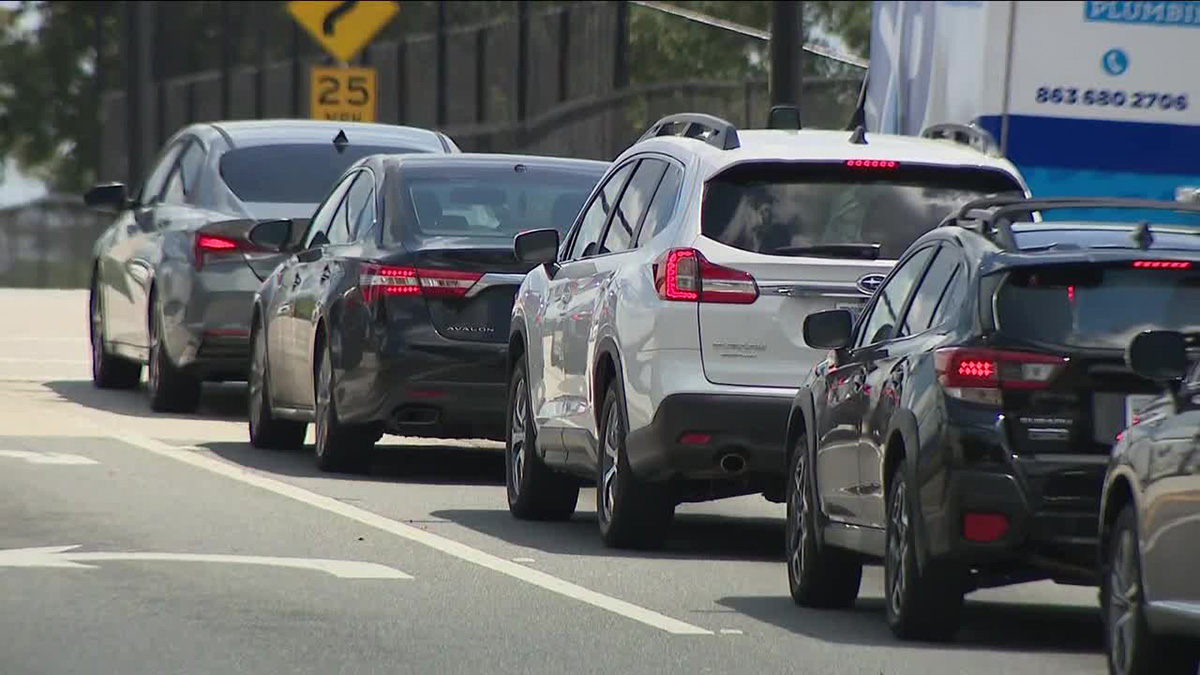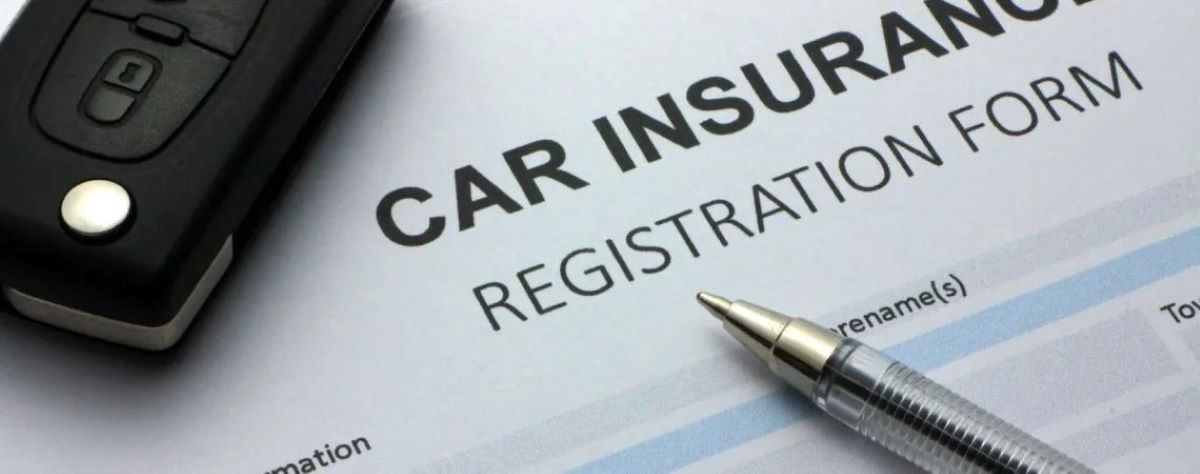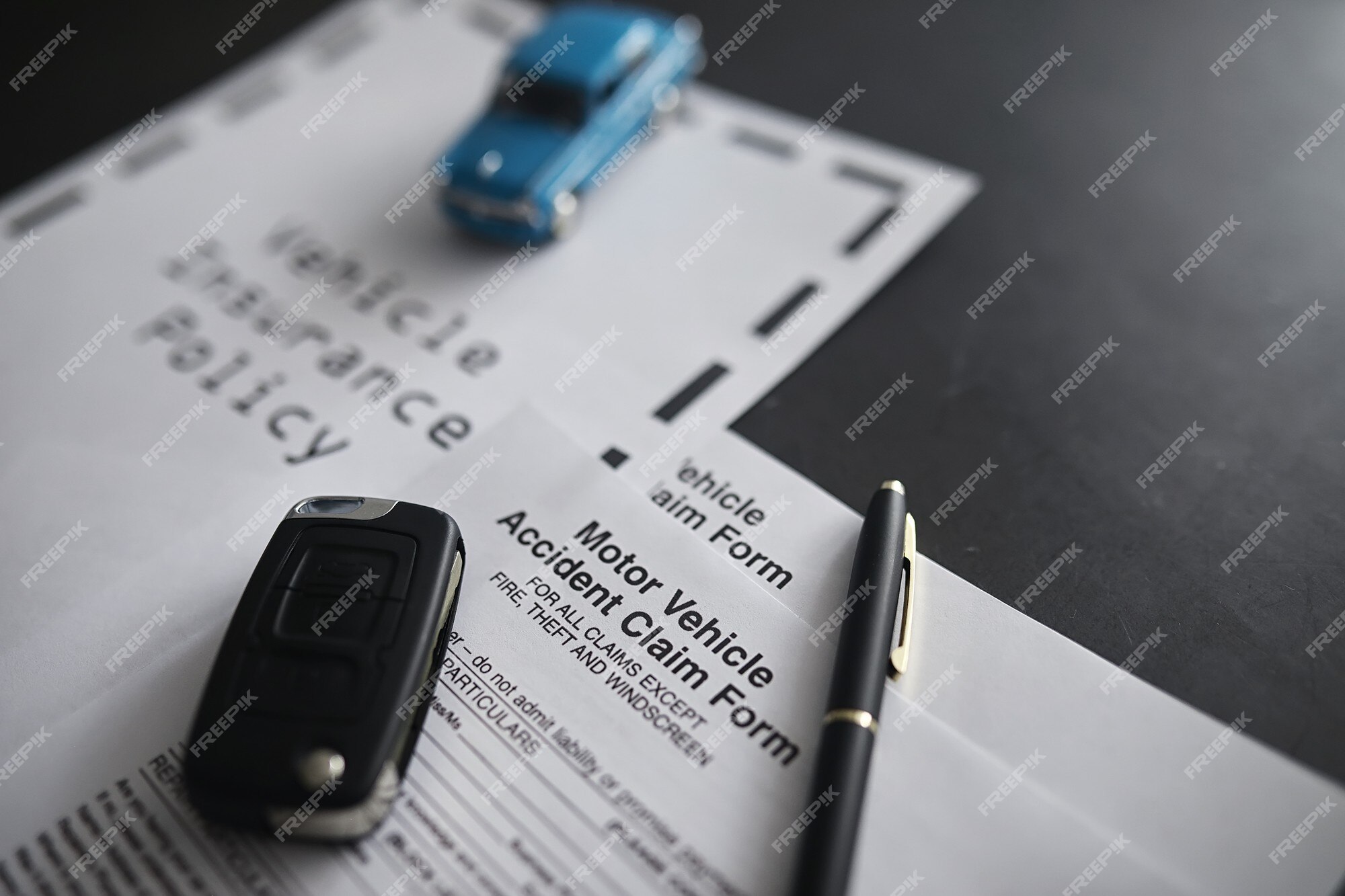

Finance
How Much Car Insurance Do I Need In Florida?
Published: November 17, 2023
Find out how much car insurance you need in Florida to protect your finances. Get expert advice and compare quotes to find the best coverage for you.
(Many of the links in this article redirect to a specific reviewed product. Your purchase of these products through affiliate links helps to generate commission for LiveWell, at no extra cost. Learn more)
Table of Contents
- Introduction
- Required Car Insurance Coverage in Florida
- Personal Injury Protection (PIP) Coverage
- Property Damage Liability (PDL) Coverage
- Uninsured Motorist Coverage
- Optional Car Insurance Coverage in Florida
- Comprehensive Coverage
- Collision Coverage
- Bodily Injury Liability (BIL) Coverage
- Medical Payments (MedPay) Coverage
- Additional Considerations
- Choosing the Right Car Insurance Coverage in Florida
- Conclusion
Introduction
When it comes to car insurance, understanding the coverage you need can be a daunting task. In the state of Florida, like any other state in the US, having the right car insurance coverage is not only a legal requirement but also crucial for your financial protection.
Florida has its own unique set of car insurance requirements and regulations that all drivers must adhere to. It’s important to have a clear understanding of these requirements to ensure you have adequate coverage in case of an accident or unforeseen circumstances.
In this article, we will delve into the various types of car insurance coverage you need to have in Florida. We will explore the required minimum coverage as well as some optional coverage options that can provide you with additional protection. By the end, you will have a comprehensive understanding of the car insurance landscape in Florida and be better equipped to make informed decisions about your coverage.
Before we dive into the specific types of car insurance coverage, it’s important to note that Florida is a no-fault state when it comes to car insurance. This means that regardless of who is at fault in an accident, each driver’s insurance company is responsible for covering their own policyholder’s medical expenses and lost wages, up to the policy limit.
Required Car Insurance Coverage in Florida
Florida law mandates that all drivers must carry a minimum amount of car insurance coverage to ensure financial responsibility in the event of an accident. The minimum required coverage in Florida consists of two components:
- Personal Injury Protection (PIP) Coverage
- Property Damage Liability (PDL) Coverage
Personal Injury Protection (PIP) Coverage is designed to cover medical expenses and lost wages for you and your passengers, regardless of who is at fault in an accident. In Florida, the minimum required PIP coverage is $10,000. This coverage is vital as it provides immediate medical benefits to you and your passengers, which can help alleviate the financial burden of medical bills and treatment costs.
Property Damage Liability (PDL) Coverage is required to cover any damages you may cause to someone else’s property, such as their vehicle or other physical property. The minimum required PDL coverage in Florida is also $10,000. This coverage ensures that you have financial protection in case you are found at fault in an accident that results in property damage.
It’s important to note that the minimum required coverage may not be sufficient in all situations. If the cost of damages or medical expenses exceeds your coverage limits, you may be personally responsible for the remaining costs. Therefore, while meeting the minimum requirements is necessary to comply with the law, it’s also wise to consider additional coverage options to protect yourself financially.
Personal Injury Protection (PIP) Coverage
Personal Injury Protection (PIP) Coverage is a crucial aspect of car insurance in Florida. It is designed to provide medical coverage and compensation for lost wages in the event of an accident, regardless of who is at fault. PIP coverage is often referred to as “no-fault” coverage.
In Florida, PIP coverage is mandatory and drivers are required to carry a minimum of $10,000 in PIP benefits. This coverage applies to you as the policyholder, as well as your passengers and certain household members who are injured in an accident. PIP coverage extends beyond the scope of your own vehicle and can also apply if you are a pedestrian involved in a car accident.
PIP coverage provides benefits for various medical expenses, including hospital bills, doctor visits, surgical procedures, medications, and rehabilitation. It can also cover a portion of your lost wages if you are unable to work due to injuries sustained in the accident.
One of the key advantages of PIP coverage is its promptness in providing medical benefits. In Florida, PIP coverage ensures that medical expenses are paid up to the policy limit without the need to establish who is at fault. This means that you can receive necessary medical treatment and care right away, regardless of the outcome of any legal proceedings related to the accident.
It’s important to note that PIP coverage has its limitations. There is a time limit for seeking medical treatment following an accident, typically within 14 days. It’s crucial to seek medical attention as soon as possible after an accident to ensure you are eligible for PIP benefits.
While PIP coverage is mandatory in Florida, it’s worth considering increasing your coverage limits beyond the minimum requirement of $10,000. Higher coverage limits can provide additional financial protection in case of severe injuries or extended medical treatment.
Remember, PIP coverage is designed to provide immediate medical benefits, but it may not cover all your medical expenses in the long term. To fully protect yourself and your financial well-being, it’s important to consider additional coverage options such as health insurance or comprehensive car insurance.
Property Damage Liability (PDL) Coverage
Property Damage Liability (PDL) Coverage is a mandatory component of car insurance coverage in Florida. It provides financial protection in the event you cause damage to someone else’s property while operating your vehicle. PDL coverage ensures that you have the means to compensate for the cost of repairing or replacing the damaged property.
In Florida, the minimum required PDL coverage is $10,000. This means that your insurance policy should provide at least $10,000 in coverage for property damage caused by your vehicle. This coverage applies to damages caused to other vehicles, buildings, fences, or any other property that is not owned by you.
Having PDL coverage is essential because it protects you from potential lawsuits and financial liability. If you are found responsible for causing property damage in an accident, your PDL coverage will help cover the costs associated with repairing or replacing the damaged property up to your coverage limit.
It’s important to note that PDL coverage only applies to damages you may cause to other people’s property and does not cover damages to your own vehicle. For coverage for your own vehicle, you would need to consider comprehensive or collision coverage, which are optional coverages in Florida.
While the minimum required PDL coverage is $10,000, it may be wise to consider higher coverage limits, especially if you own assets that could be at risk in the event of a costly accident. It’s important to ensure you have enough coverage to protect your financial interests and assets adequately.
Choosing the right PDL coverage limits can provide you with peace of mind, knowing that you have the necessary resources to cover potential property damage expenses in case of an accident. Consider your personal circumstances and financial situation when deciding on the appropriate coverage limits.
Remember, PDL coverage is a legal requirement in Florida, and failing to meet the minimum coverage limits can result in penalties, including fines, license suspension, or the inability to register your vehicle.
By having the mandatory PDL coverage, you are demonstrating financial responsibility and ensuring that you can fulfill your obligations in the event of property damage caused by you while operating your vehicle.
Uninsured Motorist Coverage
Uninsured Motorist (UM) Coverage is an optional car insurance coverage that provides protection in the event you are involved in an accident with a driver who does not have insurance or has inadequate coverage. Even though Florida law requires all drivers to have insurance, there are still instances where drivers may be uninsured or underinsured.
Uninsured Motorist coverage is designed to cover medical expenses, lost wages, and other damages that you and your passengers might incur in an accident caused by an uninsured or underinsured driver. In Florida, UM coverage is not required by law, but it is highly recommended to protect yourself from potential financial loss.
While it’s illegal to drive without insurance in Florida, there are drivers who may still do so, putting other motorists at risk. If you are involved in an accident with an uninsured driver and you do not have UM coverage, you may be responsible for covering the costs of your medical expenses and property damage out of pocket.
UM coverage can also be beneficial in hit-and-run accidents, where the at-fault driver flees the scene and cannot be identified. In such cases, your UM coverage could help compensate for the damages and injuries sustained.
It’s important to note that UM coverage can have two components: uninsured motorist bodily injury (UMBI) and uninsured motorist property damage (UMPD) coverage. UMBI coverage provides protection for medical expenses and lost wages, while UMPD coverage helps cover the cost of property damage caused by an uninsured driver.
When considering UM coverage, it’s recommended to evaluate your personal circumstances, including the likelihood of encountering uninsured or underinsured motorists, and the potential financial impact of such incidents. While UM coverage is optional, it can provide valuable peace of mind and protect you from substantial expenses in case of an accident with an uninsured driver.
Discuss your options with your insurance provider to understand the coverage limits, exclusions, and additional benefits associated with UM coverage. By choosing to add UM coverage to your insurance policy, you can ensure that you are financially protected even when involved in an accident with an uninsured or underinsured driver.
Optional Car Insurance Coverage in Florida
In addition to the required car insurance coverage in Florida, there are several optional coverage options available to further protect yourself and your vehicle. While these coverages are not mandated by law, they can provide you with added peace of mind and financial security.
Here are some of the optional car insurance coverages you may want to consider:
- Comprehensive Coverage: Comprehensive coverage protects your vehicle against non-collision related damages, such as theft, vandalism, fire, or natural disasters. It provides you with financial assistance to repair or replace your vehicle if it is damaged or stolen.
- Collision Coverage: Collision coverage covers the cost of repairing or replacing your vehicle if it is damaged in a collision with another vehicle or object, regardless of fault. This coverage is particularly important if you have a newer or more valuable vehicle.
- Bodily Injury Liability (BIL) Coverage: While BIL coverage is not required in Florida, it provides protection in case you are at fault in an accident and cause injuries to other parties. It can cover medical expenses, legal fees, and other related costs if you are sued for the injuries you caused.
- Medical Payments (MedPay) Coverage: MedPay coverage can help cover medical expenses for you and your passengers, regardless of who is at fault in an accident. It can provide additional financial support for medical treatment, ambulance fees, or even funeral expenses.
When considering optional car insurance coverage, it’s essential to assess your individual needs, budget, and risk tolerance. You may want to evaluate factors such as the value of your vehicle, your driving history, and your financial ability to cover potential damages or injuries.
Consulting with an insurance professional can help you understand the costs and benefits associated with different coverage options. They can guide you in making informed decisions based on your unique circumstances.
Remember, optional coverages provide additional layers of protection and can help safeguard your financial well-being in the face of unexpected events. While they may come at an additional cost, the peace of mind they offer is invaluable.
Comprehensive Coverage
Comprehensive coverage is an optional car insurance coverage in Florida that provides financial protection for damages to your vehicle that are not caused by a collision with another vehicle. This coverage is designed to cover a wide range of non-collision related incidents that could result in damage or loss to your vehicle.
With comprehensive coverage, you can be protected against risks such as theft, vandalism, fire, falling objects, natural disasters, and animal collisions. If your vehicle is stolen or damaged due to these situations, comprehensive coverage will help cover the cost of repairs or replacement.
This type of coverage is particularly beneficial if you have a newer or more valuable vehicle, as the repair or replacement costs can be substantial. Having comprehensive coverage can give you peace of mind knowing that you are financially protected against a variety of risks.
It’s important to understand that comprehensive coverage does come with a deductible, which is the amount you need to pay out of pocket before your insurance coverage kicks in. You can choose a deductible amount that suits your budget and preferences, but keep in mind that a higher deductible typically results in lower premiums.
When considering whether to add comprehensive coverage to your insurance policy, consider factors such as the value of your vehicle, your location, and the frequency of incidents related to theft or natural disasters in your area. These factors can help you assess the level of risk and determine if comprehensive coverage is worth the investment.
It’s also important to note that comprehensive coverage is typically subject to certain limitations and exclusions. For example, cosmetic damages or wear and tear are usually not covered. It’s essential to review your policy and understand the specific terms and conditions to ensure you have a comprehensive understanding of your coverage.
Overall, comprehensive coverage offers valuable protection against non-collision damages to your vehicle. It provides financial peace of mind and can save you from significant financial burden in the event of theft, vandalism, or other covered perils. Consider your vehicle’s value, your risk exposure, and your budget when deciding whether to include comprehensive coverage in your car insurance policy.
Collision Coverage
Collision coverage is an optional car insurance coverage in Florida that provides financial protection for damages to your vehicle resulting from a collision with another vehicle or object, regardless of fault. This coverage is designed to cover the cost of repairing or replacing your vehicle if it is damaged in a collision.
Having collision coverage is especially important if you have a newer or more valuable vehicle. In the event of an accident, collision coverage ensures that you are not solely responsible for covering the expenses associated with repairing or replacing your vehicle.
If you are involved in a collision with another vehicle, collision coverage will help cover the cost of repairs to your vehicle, up to the coverage limits of your policy. If your vehicle is deemed a total loss, meaning the cost of repairs exceeds the value of the vehicle, collision coverage can provide compensation for the actual cash value of your vehicle.
Collision coverage becomes particularly important in situations where you are at fault in an accident or when the at-fault party does not have insurance or their insurance is insufficient to cover the damages. Without collision coverage, you may be left with significant out-of-pocket expenses.
It’s important to note that collision coverage typically comes with a deductible, which is the amount you must pay out of pocket before your insurance coverage applies. You can choose a deductible amount based on your budget and preferences, but keep in mind that a higher deductible usually results in lower premiums.
When deciding whether to add collision coverage to your car insurance policy, consider factors such as the value of your vehicle, your driving history, and your ability to cover potential repair or replacement costs. These factors can help you evaluate the level of risk and determine if collision coverage is right for you.
It’s worth noting that collision coverage is typically optional, but some lenders may require it if you are financing or leasing a vehicle. Be sure to check with your lender or leasing company to understand any specific requirements regarding collision coverage.
Overall, collision coverage provides valuable financial protection for your vehicle in the event of a collision. It helps alleviate the potential financial burden of repairing or replacing your vehicle, giving you peace of mind and allowing you to focus on getting back on the road.
Bodily Injury Liability (BIL) Coverage
Bodily Injury Liability (BIL) coverage is an optional car insurance coverage in Florida that provides financial protection in case you are at fault in an accident and cause injuries to other parties. While BIL coverage is not required by law in Florida, it is highly recommended to protect your assets and future earnings.
BIL coverage helps cover the medical expenses, rehabilitation costs, and legal fees incurred by the injured party as a result of the accident. It also provides coverage if you are sued for the injuries and damages you caused in the accident.
Having sufficient BIL coverage is essential because, in the event of a severe accident, medical expenses and legal costs can quickly escalate. If you have inadequate coverage, you may be personally responsible for covering the remaining expenses, which can have a significant financial impact on you, potentially leading to the loss of your assets or future earnings.
When selecting BIL coverage, you will need to choose both a per-person and per-accident limit. The per-person limit is the maximum amount your policy will pay for injuries sustained by a single individual, while the per-accident limit is the maximum amount it will pay for all injuries in a single accident.
For example, if you have a BIL policy with a per-person limit of $50,000 and a per-accident limit of $100,000, your insurance will cover up to $50,000 in medical expenses for each injured individual, up to a total of $100,000 for all injuries in a single accident.
It’s important to carefully consider the appropriate limits for your BIL coverage. Factors such as your assets, income, and potential future earnings should be taken into account. If you own significant assets or have a higher income, it may be beneficial to increase your BIL coverage to provide greater financial protection.
Even though BIL coverage is not required by law, it plays a vital role in protecting your financial well-being. It helps ensure that you have the necessary resources to cover medical expenses and legal fees if you are found at fault in an accident resulting in injuries to others.
Consult with your insurance provider to determine the appropriate BIL coverage limits for your specific needs and circumstances. By having adequate BIL coverage, you can drive with confidence knowing that you have financial protection in case of an unfortunate accident.
Medical Payments (MedPay) Coverage
Medical Payments (MedPay) coverage is an optional car insurance coverage in Florida that provides financial assistance for medical expenses resulting from a car accident, regardless of who is at fault. MedPay coverage is designed to cover medical costs for you and your passengers, offering peace of mind and additional support during a challenging time.
MedPay coverage can help pay for a variety of medical expenses, including hospital bills, doctor visits, surgeries, ambulance fees, and even dental treatment or funeral expenses in the event of a fatal accident. This coverage provides prompt and direct payment to medical providers, helping to alleviate the financial burden associated with medical treatment.
Unlike Personal Injury Protection (PIP) coverage, MedPay coverage specifically focuses on medical expenses and does not cover other costs such as lost wages or replacement services. MedPay coverage allows you to seek necessary medical treatment without worrying about the potential financial implications.
One of the advantages of MedPay coverage is that it follows you wherever you go. Whether you are driving your own vehicle or are a passenger in someone else’s vehicle, MedPay coverage can provide medical expense coverage. It can also extend to injuries sustained as a pedestrian or cyclist involved in a car accident.
It’s important to note that MedPay coverage is typically offered in various limits, ranging from a few thousand dollars up to a significant amount. Choosing the appropriate MedPay coverage limit depends on your personal circumstances, such as your health insurance coverage and your potential need for additional financial support in case of an accident.
MedPay coverage can act as supplemental coverage to your health insurance. It can help fill in the gaps and cover deductibles, co-payments, or treatments not covered by your health insurance policy. It can also provide coverage if you do not have health insurance at all.
When considering whether to add MedPay coverage to your car insurance policy, it’s important to evaluate your health insurance coverage, your potential medical expenses, and your risk tolerance. Discussing your options with your insurance agent can help you make an informed decision about whether MedPay coverage is right for you.
Adding MedPay coverage to your car insurance policy can provide an added layer of financial security and support in case of a car accident. It ensures that you and your passengers have access to necessary medical treatment without the worry of excessive medical expenses.
Additional Considerations
When it comes to car insurance coverage in Florida, there are several additional considerations to keep in mind to ensure you have comprehensive protection and peace of mind. These considerations can help you make informed decisions about your coverage and tailor it to your specific needs and circumstances.
Driving Habits: Consider your driving habits and the frequency with which you use your vehicle. If you commute long distances or frequently travel in high-traffic areas, you may want to consider higher coverage limits to protect yourself in case of an accident.
Vehicle Value: The value of your vehicle plays a crucial role in determining the appropriate coverage options. If you have a newer or more valuable vehicle, you may want to consider comprehensive and collision coverage to protect against potential damages or loss.
Additional Drivers: If you have other drivers in your household, it’s important to consider their driving records and their potential impact on your insurance premiums. If they have a history of accidents or traffic violations, it may affect your insurance rates.
Deductible: Consider the deductible amount for each coverage option. A higher deductible can result in lower premiums, but it also means you will have to pay more out of pocket in the event of a claim.
Umbrella Insurance: In addition to your car insurance coverage, you may want to consider umbrella insurance, which provides additional liability protection beyond the limits of your primary policies. Umbrella insurance can provide an extra layer of financial security, especially if you have significant assets to protect.
Discounts: Check with your insurance provider for any available discounts that can help lower your premiums. Common discounts include safe driver discounts, multi-policy discounts, and discounts for installing safety features in your vehicle.
Review your Policy: Regularly review your car insurance policy to ensure it still meets your needs. Life circumstances and vehicle usage may change, requiring adjustments to your coverage. Stay proactive in keeping your coverage up to date.
Seek Professional Advice: If you have any questions or concerns about your car insurance coverage, it’s advisable to seek advice from an insurance professional. They can help you navigate through the complexities of insurance policies, explain coverage options, and assist you in making informed decisions.
Remember, car insurance is a vital tool for protecting your financial well-being in the event of an accident. Taking the time to consider these additional factors will help ensure you have the right coverage to meet your needs and provide the necessary protection.
Choosing the Right Car Insurance Coverage in Florida
Choosing the right car insurance coverage in Florida is essential to protect yourself financially and comply with the state’s requirements. With the various coverage options available, it’s important to assess your individual needs and consider several factors to make an informed decision.
Evaluate Your Risk: Consider your personal circumstances, such as your driving habits, the value of your vehicle, and your financial situation. If you commute long distances, have a newer or more valuable vehicle, or have significant assets to protect, you may want to consider higher coverage limits and additional coverage options.
Understand State Requirements: Familiarize yourself with Florida’s car insurance requirements, including the mandatory personal injury protection (PIP) and property damage liability (PDL) coverages. Ensure that you meet these minimum requirements, but remember that they may not provide sufficient coverage for all situations.
Assess Additional Coverage Options: Consider optional coverage options such as comprehensive, collision, bodily injury liability (BIL), uninsured motorist, and medical payments coverage. Evaluate the benefits, costs, and limitations of each coverage to determine which ones align with your specific needs.
Review Deductibles: Evaluate the deductibles associated with each coverage option. A higher deductible typically results in lower premiums but also means you’ll have to pay more out of pocket in the event of a claim. Consider your budget and risk tolerance when choosing the appropriate deductible amount.
Consider Your Budget: Take into account your budget and how much you can comfortably afford for car insurance premiums. While it’s important to have adequate coverage, it’s equally important to ensure that you can afford the premiums without straining your finances.
Shop Around for Quotes: Obtain quotes from multiple insurance providers to compare coverage options and premiums. Different insurers may offer varying rates, discounts, and additional benefits. Shopping around allows you to find the best coverage and value for your specific needs.
Review Customer Satisfaction Ratings: Research customer satisfaction ratings and reviews of insurance providers to gauge their reputation for customer service, claims processing, and overall customer experience. This information can help you choose an insurer that has a strong track record in customer satisfaction.
Consult an Insurance Professional: If you are uncertain about the coverage options or have specific questions, consider consulting an insurance professional. They can provide guidance and expertise, helping you navigate through the complexities of car insurance and make informed decisions.
Remember, choosing the right car insurance coverage involves careful consideration of your individual circumstances, risk factors, and budget. By evaluating your needs and exploring the available options, you can select the coverage that provides the necessary protection and peace of mind on the roads of Florida.
Conclusion
Car insurance is a vital component of responsible vehicle ownership in Florida. Understanding the required and optional coverage options available can help ensure that you have the right level of protection for your needs and circumstances.
Florida’s mandatory car insurance requirements include Personal Injury Protection (PIP) coverage to cover medical expenses and Property Damage Liability (PDL) coverage to cover damages caused to other people’s property. These coverages provide a basic level of financial protection but may not be sufficient in all situations.
Additional optional coverages, such as Comprehensive, Collision, Bodily Injury Liability (BIL), Uninsured Motorist, and Medical Payments (MedPay), offer additional layers of protection. These optional coverages allow you to customize your policy to provide adequate financial safeguards in case of accidents, theft, or other unforeseen circumstances.
When choosing car insurance coverage, it’s important to assess your personal risk factors, such as driving habits, vehicle value, and financial situation. Remember to review deductibles, evaluate your budget, and consider seeking quotes from multiple insurance providers to ensure you find the right coverage at a reasonable cost.
By understanding Florida’s car insurance requirements and taking the time to select the appropriate coverage options, you can protect yourself financially and provide peace of mind while on the road. Regularly reviewing and reassessing your coverage needs is key to maintaining adequate protection as your circumstances change.
Consult with an insurance professional to clarify any doubts or questions you may have and to explore the best coverage options for your specific needs. They can provide valuable insights and help you make informed decisions.
In conclusion, investing in the right car insurance coverage is not only a legal obligation but also a smart financial decision. By having the appropriate coverage, you can safeguard your financial well-being and enjoy the freedom of driving in Florida with peace of mind.














